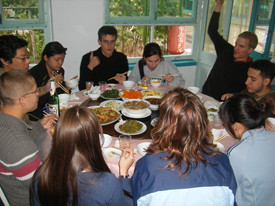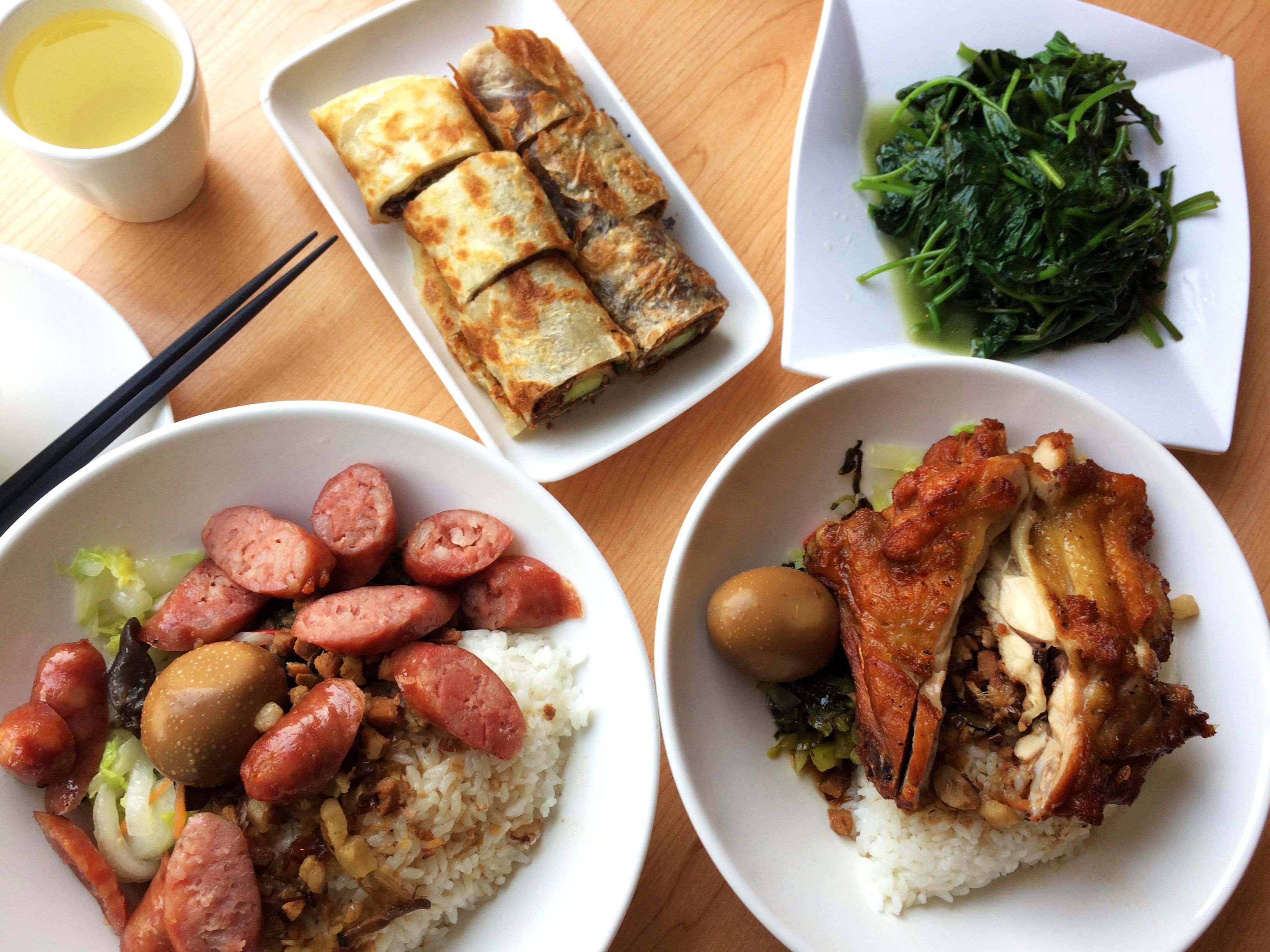How to eat out in Chinese

可以给我菜单吗?
kěyǐ gěi wǒ càidān ma
Can I see a menu?
有推荐菜吗?
yǒu tuījiàncài ma
What do you recommend?
全素食
quán sùshí
Vegan
不要肉
búyào ròu
No meat
有肉吗?
yǒuròu ma
Does it contain meat?
VIP vocab
What do you ask for if the menu is unclear or presented in a way you don’t understand? Ordering the wrong food can ruin your night in an instant, so be sure to remember some of the common dishes and drinks and how to pronounce them:
面条
miàn tiáo
Noodles
水饺
shuǐ jiǎo
Dumplings
火锅
huǒ guō
Hotpot
啤酒
pí jiǔ
Beer
白酒
bái jiǔ
Baijiu (Chinese spirit)

不辣
bú là
Not spicy
不要酱
búyào jiàng
No sauce
甜的
tián de
Sweet
酸的
suān de
Sour
Minding your manners
Waving at waiters and mumbling one-word sentences might get the point across – but here at Hutong School, we like to at least try and be polite our attempts at speaking Chinese.
不好意思
bù hǎo yì si
Excuse me
我想要…
wǒ xiǎng yào
I would like…
对不起
duì bù qǐ
Sorry
Paying the bill
The final stage of the dining experience is paying and leaving. Again, the international gesture of signing an imaginary bill above your head is likely to get the attention of the waiting staff, but it’s always better to use the correct phrases. Don’t forget, a lot of restaurants in China expect you to pay at the counter, so don’t be offended if you feel like you’re being ignored – the restaurant staff will expect you to simply get up and pay when you’re ready.
我可以买单了。
wǒ kěyǐ mǎidān le
I’m ready for the check
可以付现金吗?
kěyǐ fù xiànjīn ma
Can I pay with cash?
微信付
wēixìn fù
WeChat pay
支付宝付
zhīfùbǎo fù
Alipay
我扫你还是你扫我?
wǒ sǎo nǐ háishì nǐ sǎo wǒ
Should I scan your code or you scan mine?
Show us what you’ve got
We hope this article has prepared you with some useful terms to use on your next outing. Remember, practice makes perfect, so don’t be afraid of making mistakes – the waiters will understand.
Now, get and there and give it a go!